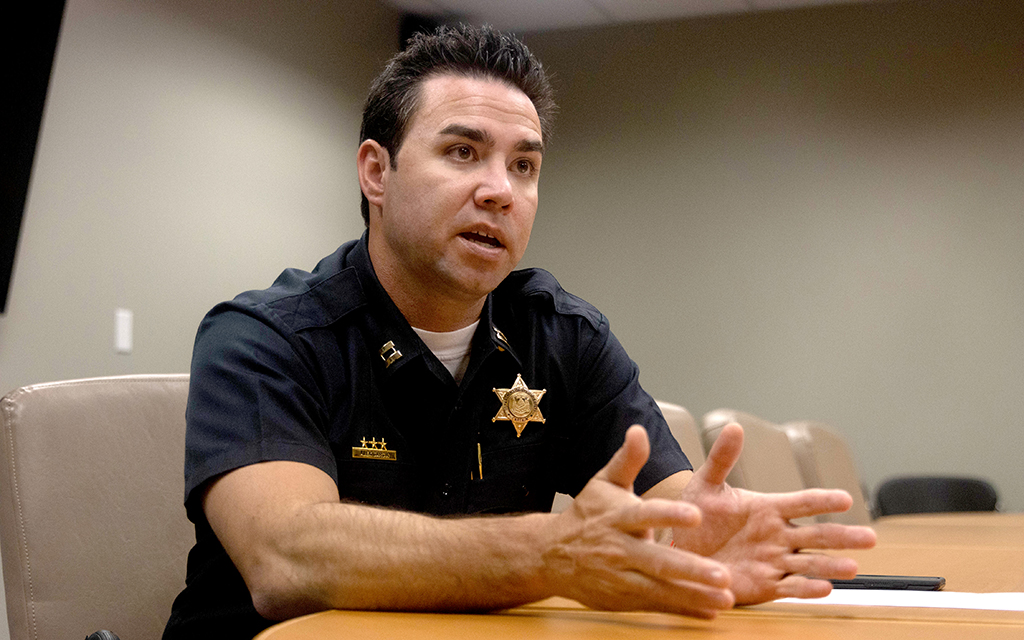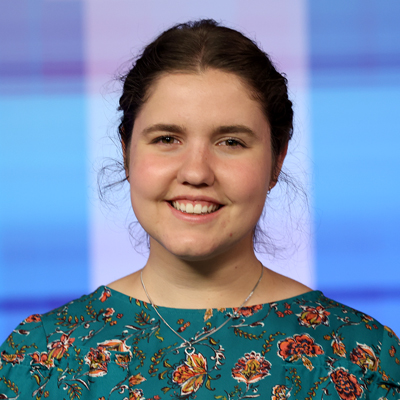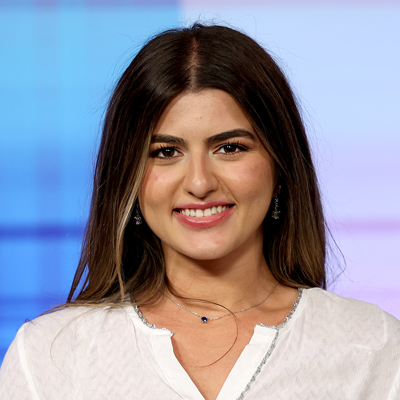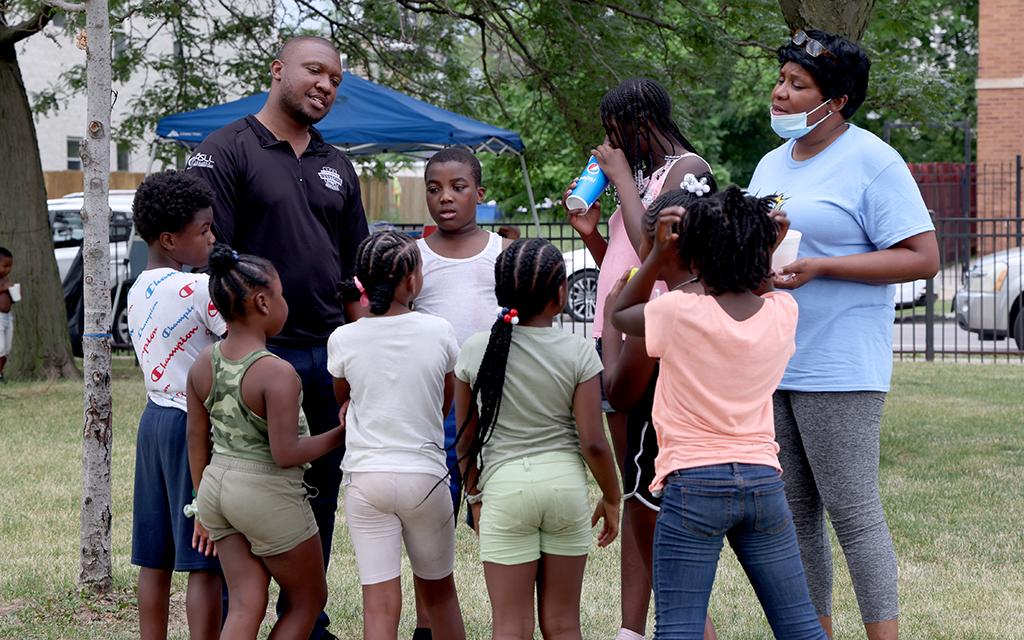
Chicago police sergeant brings together kids, sports and officers to build ‘level of humanity’
Sept. 23, 2022
CHICAGO – Jermaine Harris wanted to resign. Just a few years into his law enforcement career, he had seen enough. The stress of the job was too much, and his mental health was deteriorating.
It was time to quit.
At the time, his son had turned 6 and was getting interested in sports. Harris took up coaching young people, and that made all the difference.
“That really helped me through my own career of just providing that kind of balance of seeing kids playing and doing sports, that were the opposite of the kids that I would run into at work,” said Harris, now a community policing sergeant with the Chicago Police Department. “They weren’t the victims of crimes. They weren’t being abused. It was just seeing that natural, healthy adult-youth relationship.”
Thirteen years after stepping onto the field as a coach, Harris launched a program aimed at helping officers experience the same benefits he did from coaching. He also wanted to collaborate with residents of Chicago’s West Side – one of its three major sections – to build a better environment for its children.
He founded Chicago Westside Sports, a league with hundreds of kids who play and dozens of officers, faith leaders and nonprofit leaders who coach.
The goal: Build better relationships, on and off the field.
“It’s really this idea around a criminal justice system being a part of the teams to introduce those relationships, to not only to the families but also help us as public safety professionals to understand why we do the work,” Harris said. “Understand who we’re fighting for, understand that level of humanity that’s necessary to do our jobs effectively.”
Westside Sports started in 2017, growing from a program Chicago police initially launched through a grant. Youngsters 7 to 14 play on baseball and basketball teams. Each team has three coaches: a faith leader, a nonprofit leader and a police officer. This three-pronged approach is one of the ways the program builds networks for families, Harris said.
If a family faces challenges, such as food insecurity, they can help find solutions to support them, he said.
“(It’s a) great part about what we do with the program that’s not sports specific,” Harris said. “It’s more about just social service support, community uplifting, empowerment specific, and that the organizations we partner with all have resources in some way here or there.”
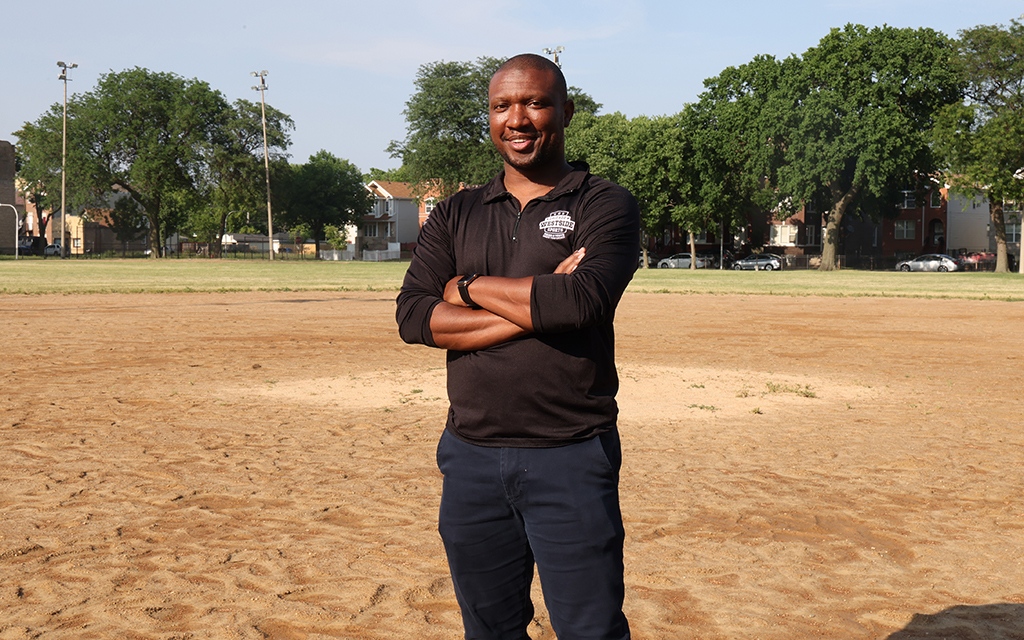
Jermaine Harris, a community policing sergeant with the Chicago Police Department, says coaching helped him find balance in his career. He founded Chicago Westside Sports to improve police relationships with the community and connect residents with support services they need. (Photo by Gabriela Tumani/News21)
Elaine Marthel, one of the nonprofit leaders and coaches, sees the impact of that support network firsthand with her organization, Project Impact 180. As the founder and CEO of the leadership and mentoring program, Marthel sees many of the kids both on the field and in her program.
Marthel, who has been a Westside Sports coach for two years, said she has seen the change in perception the young people in the sports program have toward police officers. She coaches a team that meets at a field in a neighborhood, which has predominantly Black residents. As a Black woman herself, she said she understands the fears many in the community have about police.
She remembered an incident when a police officer approached a Memorial Day weekend gathering she had held at a park, and a young man in the group put his arms up.
“It speaks to the perception of what our young people have toward officers,” Marthel said. “So for them to be (at the games), it definitely changes the perception that our young people have toward officers that they’re not all bad. They’re not all criminals, they’re not there to kill me.”
At one practice this summer, Marthel gestured to the bleachers in front of her, pointing out a grandma, an aunt and a cousin, all cheering on one player. The families talk to the officers, too, she said, forming relationships and, hopefully, helping adults work through their own fears.
“It’s this way we’re trying to protect our children, and I think sometimes it’s counterproductive, because we instill the fear,” Marthel said. “Oftentimes kids are running because they’re fearful because of what’s been seeded into them.”
The community approach to policing – from initiatives such as Westside Sports to encouraging officers to get to know the neighborhoods they police – has become a popular approach.
But critics say it’s a PR tool and hypocritical. Rabbi Michael Ben Yosef has protested against police in downtown Chicago for years. One day in July, he stood in front of a sign depicting Black women killed by police.
To Yosef, the police department has not changed since policing began, and he does not have faith that officers understanding communities will be the change activists like him want.
He said the police have a code of silence.
“You want to implement community policing in our communities but not willing to give us information about bringing accountability for those who are responsible for murder?” he said. “So it’s like, it’s like hypocrisy in our face.”
At practice, Marthel watches the kids playing and smiles, even as she talks about the fear and brutality many people in her Westside community feel.
“Sometimes, we don’t see officers as regular people. It’s like they are the bad guy. So it’s them versus us,” Marthel said. “But when they come like this in regular clothes, it sends that message, ‘I have a family just like you. I’m a human just like you.’ And I think that’s important for the kids to see.”
Come back on Oct. 3, when we start publishing the main News21 “In Pursuit” project.
Our content is free to use. If you want to republish this story, find our terms of use here and download the text story and assets.
